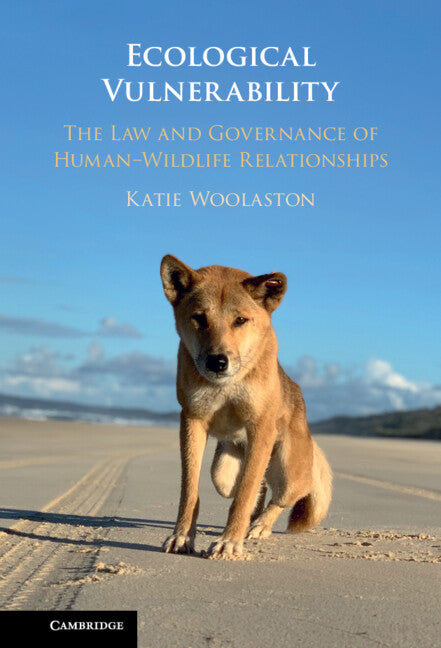Freshly Printed - allow 8 days lead
Couldn't load pickup availability
Ecological Vulnerability
The Law and Governance of Human–Wildlife Relationships
This book offers novel theoretical responses to the question of how laws and institutions shape the human-wildlife relationship.
Katie Woolaston (Author)
9781316511992, Cambridge University Press
Hardback, published 23 June 2022
224 pages
23.6 x 15.8 x 2 cm, 0.5 kg
Humans are responsible for biodiversity loss in many related and sometimes conflicting ways. Human-wildlife conflict, commonly defined as any negative interaction between people and wildlife, is a primary contributor to wildlife extinction and a manifestation of the destructive relationship that people have with wildlife. The author presents this 'wicked' problem in a social and legal context and demonstrates that legal institutions structurally deny human-wildlife conflict, while exacerbating conflict, promoting values consistent with individual autonomy, and ignoring the interconnected vulnerabilities shared by human and non-human species alike. It is the use of international and state law that sheds light on existing conflicts, including dingo conflict on K'Gari-Fraser Island in Australia, elephant conflict in Northern Botswana, and the global wildlife trade contributing to COVID-19. This book presents a critical analysis of human-wildlife conflict and its governance, to guide lawyers, scientists and conservations alike in the transformation of the management of human-wildlife conflict.
1. The Broken Human-Wildlife Relationship
2. The Human-Wildlife Relationship: An Ecofeminist Approach to Vulnerability Theory
3. Friends in the Wild? The Problem of Human-Wildlife Conflict and its Governance
4. Friends in Law?: the Critical Complexities of International Wildlife Law
5. Human-Dingo Conflict on K'Gari-Fraser Island
6. Human-Elephant Conflict in Northern Botswana
7. Pandemic Vulnerability and Resilience
Wildlife and COVID-19
8. Conclusion.
Subject Areas: Environment law [LNKJ]


